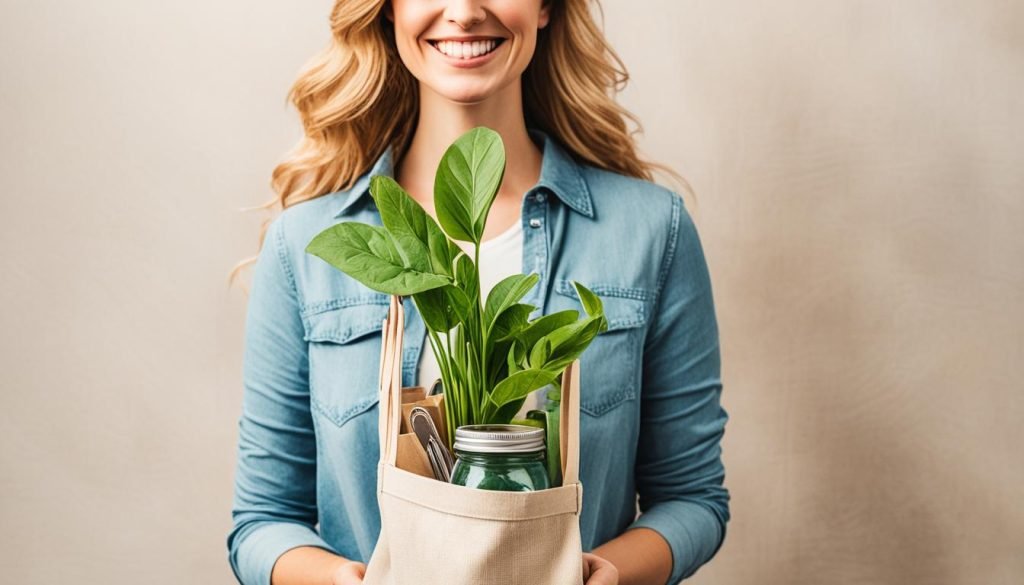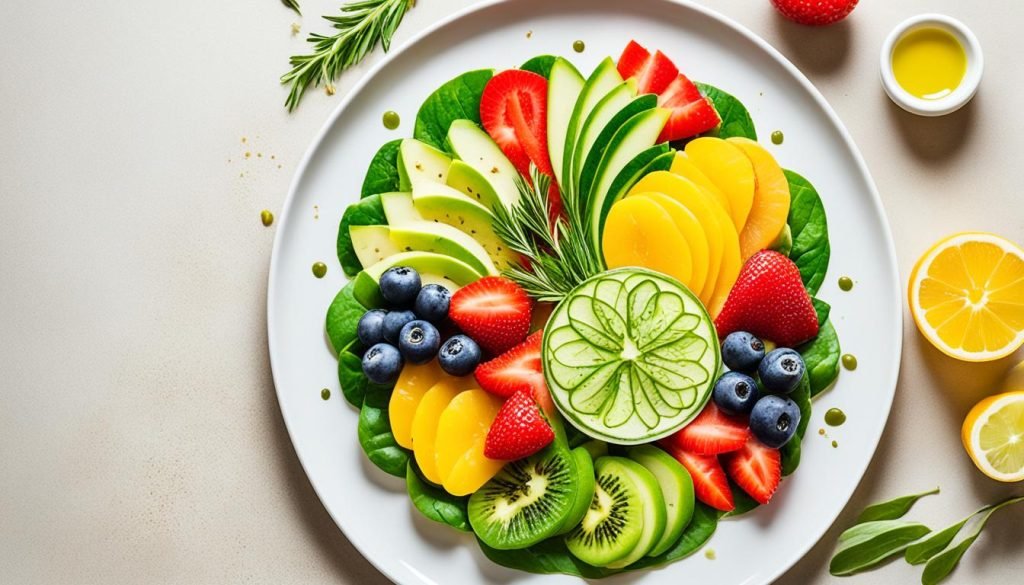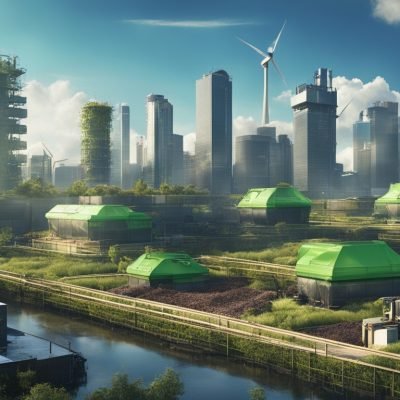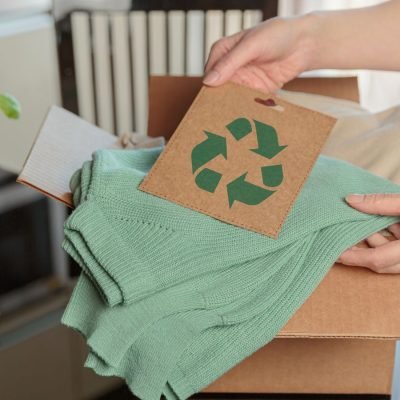Living eco-friendly is not just a trend; it’s essential for our planet’s health. We can help the earth by making small, sustainable changes. This includes things like using less plastic, saving energy and water, and picking eco-friendly items. To protect our environment, every effort we make matters.
Key Takeaways:
- Small changes in our daily routines can have a significant impact on the environment.
- Reducing plastic consumption and switching to reusable alternatives are effective ways to minimize waste.
- Conserving energy and water through simple habits like turning off lights and taking shorter showers is essential.
- Mindful shopping choices, supporting local products, and exploring plant-based diets contribute to sustainable living.
- Choosing eco-friendly materials and products for our homes creates a cozy and environmentally conscious living space.
Save Electricity, Water, and Reduce Plastic Consumption
Living an eco-friendly life means focusing on energy and water saving, as well as using less plastic. These steps lead to a smaller environmental impact. They also help make our planet greener for the future.
Let’s start by saving electricity and water. Turn off lights when you don’t need them. Unplug gadgets not in use to avoid using extra power. This way, you cut down on energy use and save money on your power bill.
‘Saving energy and water not only benefits the environment but also saves you money in the long run,’ says Brian Thompson, a leading environmental expert.
Water saving is just as important. Choose quick showers over baths to use less water. Also, fix any leaks you find to prevent water waste. Using appliances that save water, like low-flow showerheads and toilets, is a good idea too.
To cut down on plastic, start by swapping single-use plastic with reusable items. Use a cloth bag instead of a plastic one for shopping. Pick stainless steel or glass water bottles over disposable ones.
‘Choosing reusable items over single-use plastics helps preserve our environment and reduces the amount of plastic waste ending up in landfills and oceans,’ suggests Lisa Johnson, an environmental activist.
Recycle your waste to lessen plastic in landfills. Know and follow your local area’s recycling rules. Recycling plastic not only saves resources but also uses less energy to make new plastic.
Following these steps will make your life greener. You will help save electricity and water, while also reducing plastic waste.
| Benefits of Saving Electricity, Water, and Reducing Plastic Consumption | Sustainable Habits |
|---|---|
| 1. Reduced greenhouse gas emissions | 1. Turn off lights when not in use |
| 2. Lower utility bills | 2. Opt for quick showers over baths |
| 3. Conservation of natural resources | 3. Use reusable bags and water bottles |
| 4. Minimized plastic waste in landfills and oceans | 4. Separate waste for recycling |
Embrace Zero Waste and Upcycling
Living a zero waste life can greatly cut down on trash. Making simple changes and thoughtful choices reduces your trash. You focus on reusing, recycling, and composting to keep waste from piling up.
Seek products that don’t use lots of packaging. Items with little or biodegradable wrapping are best. Buying in bulk cuts down on waste, too. Choosing goods like loose fruits and veggies means less packaging waste.
Use reusable containers for food and drinks. Switch to stainless steel or glass instead of plastic. This cuts down on single-use plastic and is better for the planet.
Upcycling turns old items into something new. It’s a fun way to be creative and reduce trash. You can turn old jars into lights or make rugs from worn-out shirts. The limit is your imagination.
Zero waste and upcycling help cut trash and are good for the environment. Taking part in these efforts makes the world a better place. You help the planet and the people who live on it.

Benefits of Zero Waste and Upcycling
Choosing a zero waste lifestyle and upcycling has many perks:
- Waste Reduction: Less trash means we harm the planet less, saving it from bad effects.
- Resource Conservation: By reusing and repurposing, we use stuff more wisely, needing fewer new materials.
- Financial Savings: Reusing goods and tools saves cash by not buying new and using less throwaway stuff.
- Creative Outlet: Turning old stuff into new, exciting things lets your creativity shine.
- Environmental Awareness: It helps show how our waste affects the Earth and offers better ways to do things.
Adopting the zero waste mindset and exploring upcycling can help the planet. It aids in cutting trash, saving resources, and creating a greener, more sustainable future.
Case Study: The Zero Waste Home by Bea Johnson
“Zero waste living is more than just recycling and composting. It’s about avoiding excess waste, focusing on a circular economy, and reevaluating our buying and selling habits. Every little change helps build a sustainable future.”
Make Conscious Shopping Choices and Reduce Meat Consumption
Every little step we take helps the environment. Making smart choices when you shop can really make a difference. By knowing what we buy and eat, we can lower our impact on the earth. This also helps live sustainably.
It’s key to choose products that are made nearby. This doesn’t just help our local economy grow. It also cuts down on the pollution from moving the goods. You can find great options at farmers’ markets, community agriculture projects, and small, local stores. They offer organic, earth-friendly items.
Eating less meat is a big win for our planet. Plant diets are getting more and more popular because they’re good for the earth. Things like “Meatless Monday” can help you try new, tasty, plant meals. Going plant-based cuts down on harmful gases, helps animals, and supports fair food systems.
Choosing local items and eating more plant foods is a win for everyone. It’s good for our health and the planet.
Exploring Plant-Based Alternatives
Starting to eat more plant foods can feel hard, but it’s easier than you think. Today, there are lots of tasty options that aren’t from animals. You can find things like tofu, tempeh, and plant burgers. They taste great and are good for you.
If you’re worried about protein without meat, don’t be. There are many plant sources for protein. Things like beans, nuts, and seeds have plenty. If you want, you can also try plant protein powders, like pea or hemp protein, to help out.

By shopping smart and trying more plant foods, we can help our world. It’s about being mindful of what we buy, supporting local makers, and choosing plant options. Together, we can make the future greener and better.
Choose Eco-Friendly Materials and Products for Your Home
Choosing natural materials to furnish your home is great for the look and the planet. Things like solid wood, stone, seagrass, and plant-based fabrics make your home eco-friendly.
Picking textiles like cotton, jute, linen, or wool is smart for furniture and décor. These are both biodegradable and good for the Earth. So, they’re perfect if you care about your carbon footprint.
Now, there are even upholstery fabrics that are eco-friendly because they’re made from recycled stuff. GRACE, FOREVER, and TIARA have sustainable options. These fabrics are durable and simple to keep clean. Using them in your home makes it both cozy and green.
Opting for natural and eco-friendly items lets you help the environment. Plus, it makes your home look great. You’re making a difference with a lovely, eco-conscious space.




